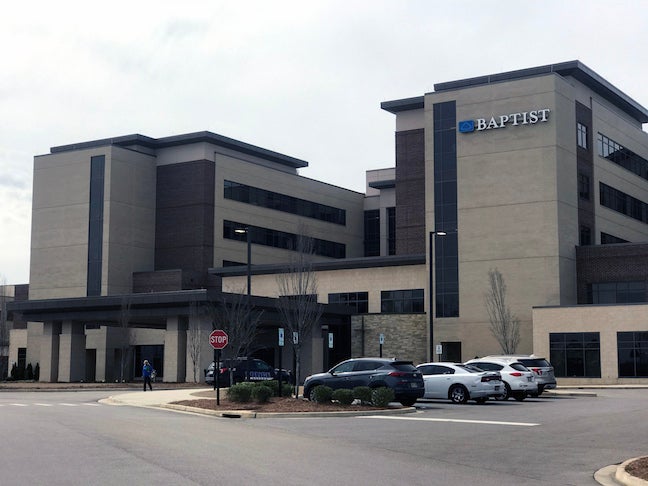Oxford schools study finances, project
Published 6:00 am Saturday, June 25, 2016
By Michael Quirk
michael.quirk@oxfordeagle.com
The Oxford School District held a special meeting on Wednesday, congregating at the Oxford Intermediate School for a presentation from financial adviser Demery Grubbs regarding upcoming projects in the district.
Grubbs addressed the board members regarding the two options they face in order to finance the estimated $20 million needed for the projects. Improvements include renovations to the existing schools, additions to Oxford High School and a new elementary school. No vote was taken or scheduled to be taken during the meeting, rather the presentation was merely for consideration.
The first option is standard issuance 20-year issue general obligation bonds. Estimated cost of issuance would be $350,000 for the $20 million par amount of bonds. Currently, the district is growing at 5.3 percent annually, and with conservative estimates at 4 and 5 percent, the millage required for the measure would be 3.27 and 3.24, respectively, down from the current 3.40.
The second option is a deferred principal 23-year issue general obligation bonds. Par amount of bonds comes out to $22 million with a capitalized interest of $1,925,000 and a $375,000 estimated cost of issuance. The millage required at 4 and 5 percent would be 2.04 and 1.98, respectively.
Option No. 2 would be more money but over a longer period of time. When asked by the board which option he would recommend, Grubbs emphatically encouraged the board that No. 2 is a more conservative decision. Similar decisions faced school districts in Pearl and Gulfport recently. Superintendent Brian Harvey said the vote will be held at a later date.
Possible project
Also at Wednesday’s special board meeting, superintendent Brian Harvey introduced Dr. John Hodge of the Urban Leadership and Learning Center. Harvey discussed the achievement gap existing in Oxford and the need to listen to the ULLC about ways to close the numbers.
“Oxford in many ways is unique that it’s a university town: we have professors here, a $350 million hospital that’s being constructed, it’s a federal district court seat, University of Mississippi Law School here, all the people that graduate from Ole Miss want to come back here as it’s a great place to raise a family,” he said. “In some areas, we are the very same as others in Mississippi. We have poverty. It’s well hidden and you can’t see it in Oxford but it’s here. We see it, we know it’s here.”
Harvey said the math gap has been closing but the language arts gap is growing. So the district has hired literacy coaches, interventionists and others to try to help the lower socioeconomic groups in the district. Harvey also said it was important to bring in a group such as the ULLC, who, according to Hodge, paid their way down to the Magnolia State.
“We take the lessons that we learned in high poverty schools and share those ideals throughout the United States,” he said. “This is not a sales pitch, we are here on our own dime. When we talked to Superintendent Harvey, we heard commitment in his voice and we are here because we believe this community cares.”
The ULLC has worked in various states along the eastern and southern coasts, including Louisiana, Georgia, South Carolina, New York, Maryland, Virginia and Texas. Based out of Virginia, the group is described as a “public, but praying, company.”
Hodge discussed the correlations between poverty at home and production in school, saying that the group believes that circumstances need not justify academic behavior. He also preached S.A.M.E (Social, Academic and Moral Education) as a means to close the gap. On the social angle, students at the Achievable Dream Academy — where the ULLC has closely worked in the past — learned manners in the cafeteria, where many front office referrals arise.
In the academic sector, Hodge preached the S.L.A.N.T. rule, or “Sit toward the front, Lean forward, Ask questions, Nod your head and Talk to your teachers.” On the moral side, he explained, “treat him like he can graduate,” as a way of telling teachers to put aside any bias they may have from past students to believe that each and every student can succeed. It will not be a short-term fix, nor will it be a singular effort, according to Hodge.
“You have to truly believe that Oxford students can be successful regardless of circumstance,” he said. “All of Oxford’s children belong to all of us.”





